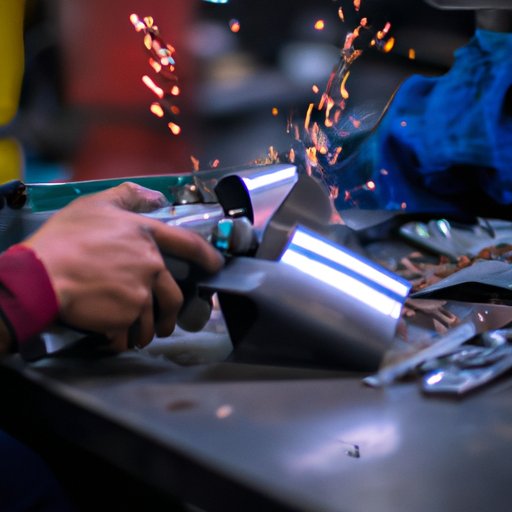Introduction
Fabrication businesses are companies that specialize in creating products from raw materials. By cutting, shaping, and assembling metal and other materials, these businesses create complex components and products for use in many different industries. Starting a fabrication business can be a lucrative venture, but there are several considerations to keep in mind before launching a company in this field.

Definition of a Fabrication Business
A fabrication business is any type of company that specializes in creating custom parts or products from raw materials. These businesses take raw materials such as metal, plastic, wood, and fabric and turn them into finished products. Examples of products created by a fabrication business include machinery, tools, furniture, car parts, and other items used in industrial and commercial settings.

Benefits of Starting a Fabrication Business
The primary benefit of starting a fabrication business is the potential for profitability. With the right combination of skill, experience, and capital, these businesses can quickly become profitable. Additionally, fabrication businesses are typically able to charge higher prices for their products due to the specialized nature of their services. This means that the profit margins on each sale can be quite high.
Steps Involved in Starting a Fabrication Business
There are several key steps involved in setting up a successful fabrication business. The first step is to obtain adequate funding for the venture. This may involve taking out a loan, seeking venture capital, or finding angel investors to finance the start-up costs. The second step is to acquire the necessary equipment for the business, such as welders, saws, presses, and other machinery. The third step is to find customers who will purchase the fabricated products. This may involve networking, cold calling, and attending trade shows.

Skills and Experience Needed to Run a Successful Fabrication Business
Running a successful fabrication business requires a wide range of skills and experience. Technical expertise in welding and other fabrication processes is essential, as is a working knowledge of engineering principles and materials science. Additionally, strong business acumen is required to manage the financial side of the business, such as pricing, budgeting, and forecasting. Finally, an understanding of the specific industry in which the business operates is important, as this will help the owner make informed decisions about product development and marketing.
Researching the Competitive Landscape
Before launching a fabrication business, it’s important to research the competitive landscape. This involves identifying potential competitors and assessing their strengths and weaknesses. Additionally, it’s important to differentiate your own business from the competition. Consider how you can offer something unique, such as lower prices, better customer service, or faster delivery times. Finally, market research can be used to identify potential opportunities in the marketplace and determine how best to target them.
Financial Considerations
In addition to the start-up costs associated with setting up a fabrication business, there are also ongoing financial considerations. These include obtaining the necessary licenses and permits, paying taxes, and purchasing insurance. It’s important to understand the legal and financial implications of running a fabrication business in order to ensure long-term success.
Case Studies of Successful Fabrication Businesses
Studying the success stories of existing fabrication businesses can provide valuable insights into what makes them successful. For example, some businesses have focused on providing high quality products at competitive prices, while others have used innovative marketing strategies to reach new customers. Examining the various approaches used by successful fabrication businesses can help entrepreneurs devise their own strategies for success.
Conclusion
Starting a fabrication business can be a lucrative venture, but it requires careful planning and forethought. Obtaining funding, acquiring equipment, finding customers, and researching the competitive landscape are all key steps in launching a successful fabrication business. Additionally, having the necessary technical, business, and industry knowledge will be essential in running a successful operation. Finally, studying case studies of successful fabrication businesses can provide valuable insights into what makes them successful.
(Note: Is this article not meeting your expectations? Do you have knowledge or insights to share? Unlock new opportunities and expand your reach by joining our authors team. Click Registration to join us and share your expertise with our readers.)
